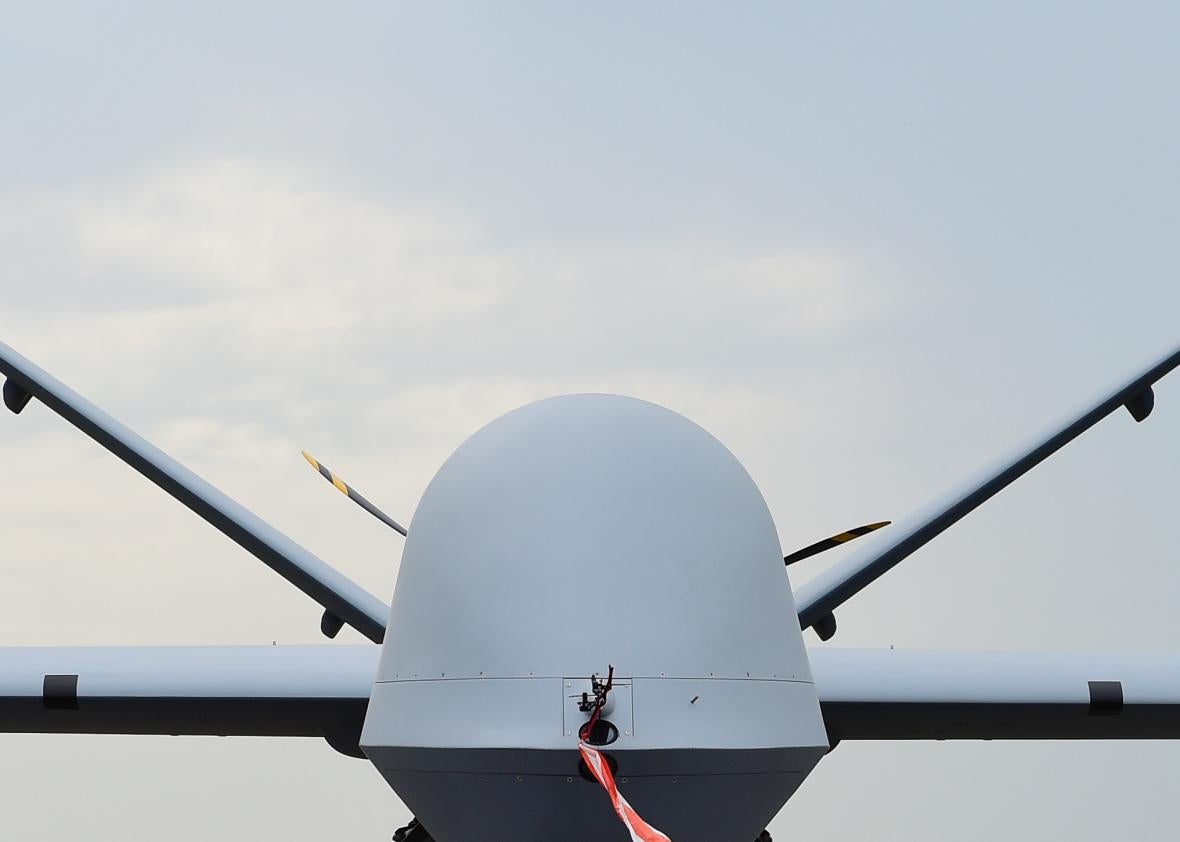The U.S. has paid $1.2 million to the family of an Italian aid worker accidentally killed by an American drone strike last year, an extremely unusual response to the accidental killing of a civilian by the controversial program. Giovanni Lo Porto was being held hostage along with an American named Warren Weinstein at an al-Qaida compound in Pakistan, the target of the strike. According to the Guardian, the U.S. embassy in Rome confirmed this week that the payment had taken place in July. It’s not clear whether a similar payment was made to Weinstein’s family.
President Obama took the rare step of acknowledging and apologizing for the killing of Weinstein and Lo Porto last year, though he studiously avoided use of the word “drone” or acknowledging that the strike had happened in Pakistan. The news of the payment comes a few months after the administration released an estimate that 64 to 116 civilians have been killed in its drone strikes, far lower than the estimates of most organizations tracking the drone program, some of which are as high as 1,000.
The payment given to Lo Porto’s family is unusual for a few reasons: its size, its delivery, and how we’re hearing about it. Unlike this public acknowledgment, the U.S. government is usually extremely tight-lipped about compensation given to innocent victims of drone strikes. In war zones like Afghanistan, the U.S. frequently gives “solatia” payments to innocent victims of U.S. military activity—all activity, not just drone strikes—typically around $5,000, according to a 2013 ProPublica report. Other payments are less direct. According to the Washington Post, in 2013, the Yemeni government paid more than $1 million to victims of U.S. drone strikes. Much of the money likely came out of U.S. military aid, so it could be thought of as an indirect form of compensation. In a strange 2014 Yahoo News story, a Yemeni civil servant who had asked U.S. officials for compensation for the strike that decimated his village, claimed to have been offered a bag containing $100,000 in cash by Yemen’s National Security Bureau and told that “it came from the U.S. government.” The government of Pakistan, where Lo Porto and Weinstein were killed, has also at times given payments to the victims of U.S. strikes. For instance, in 2011 it paid about $3,000 each to the families of victims of a strike in North Waziristan.
The rules are clearly a little different when the victim of one of these strikes isn’t a local.
